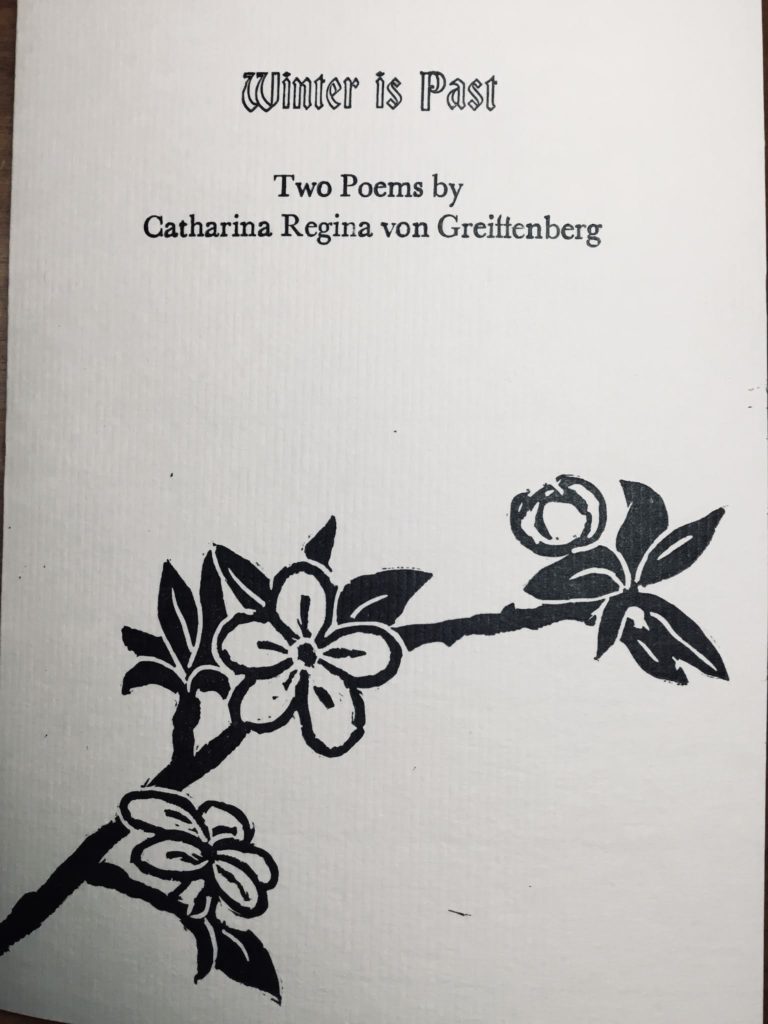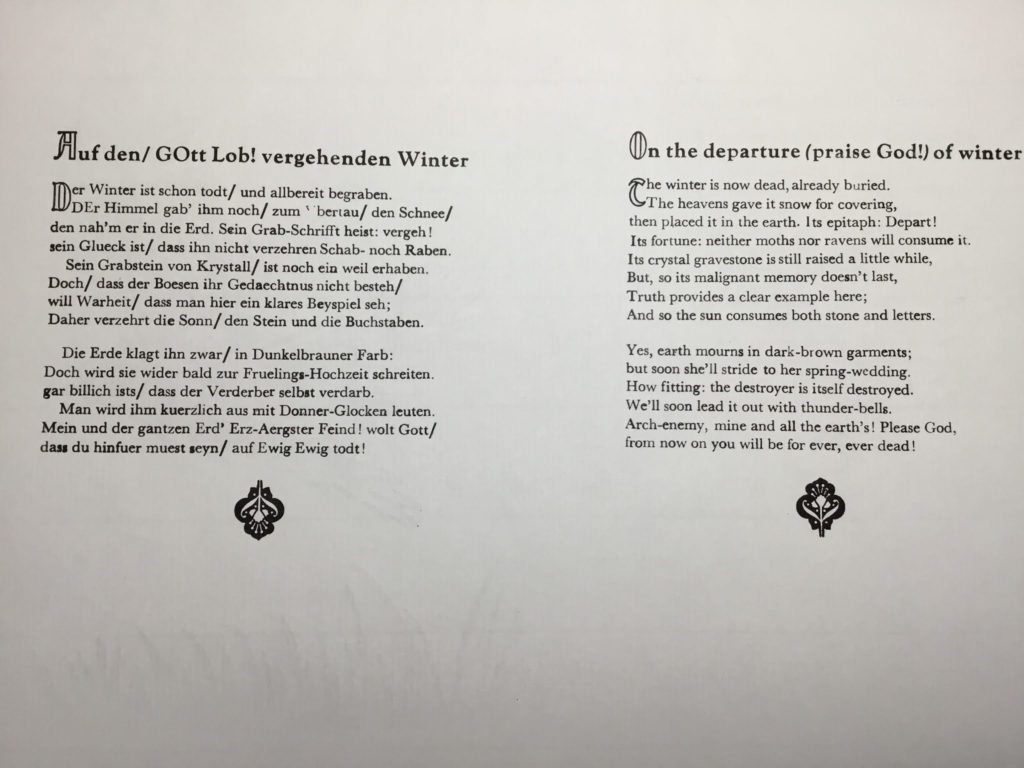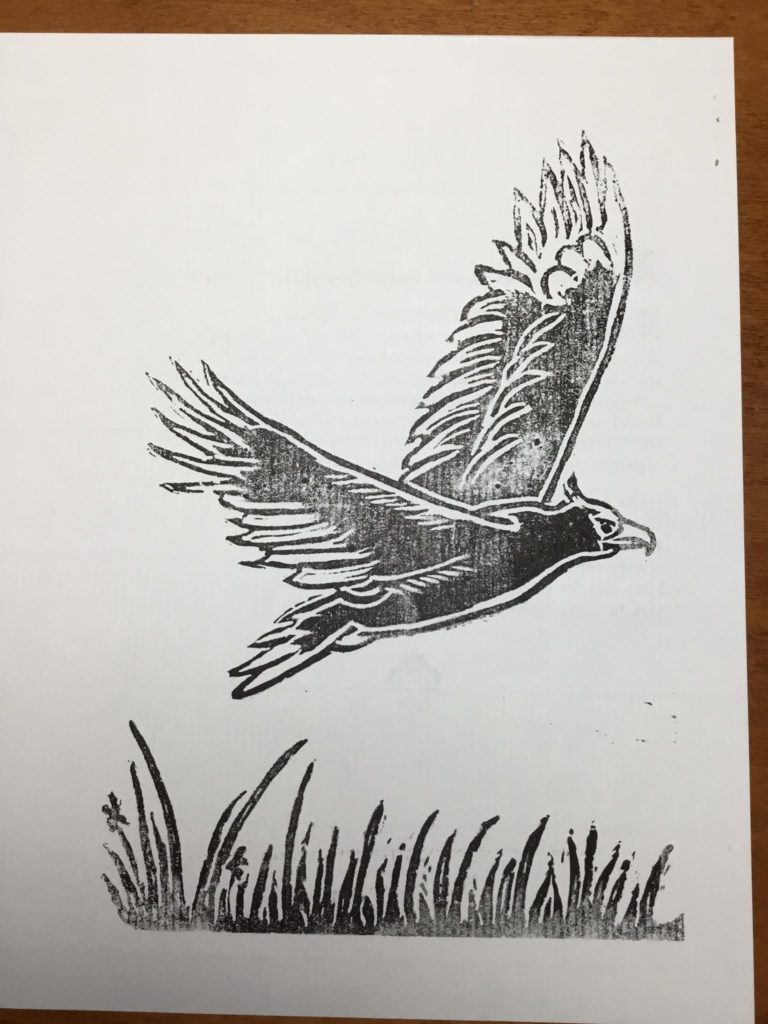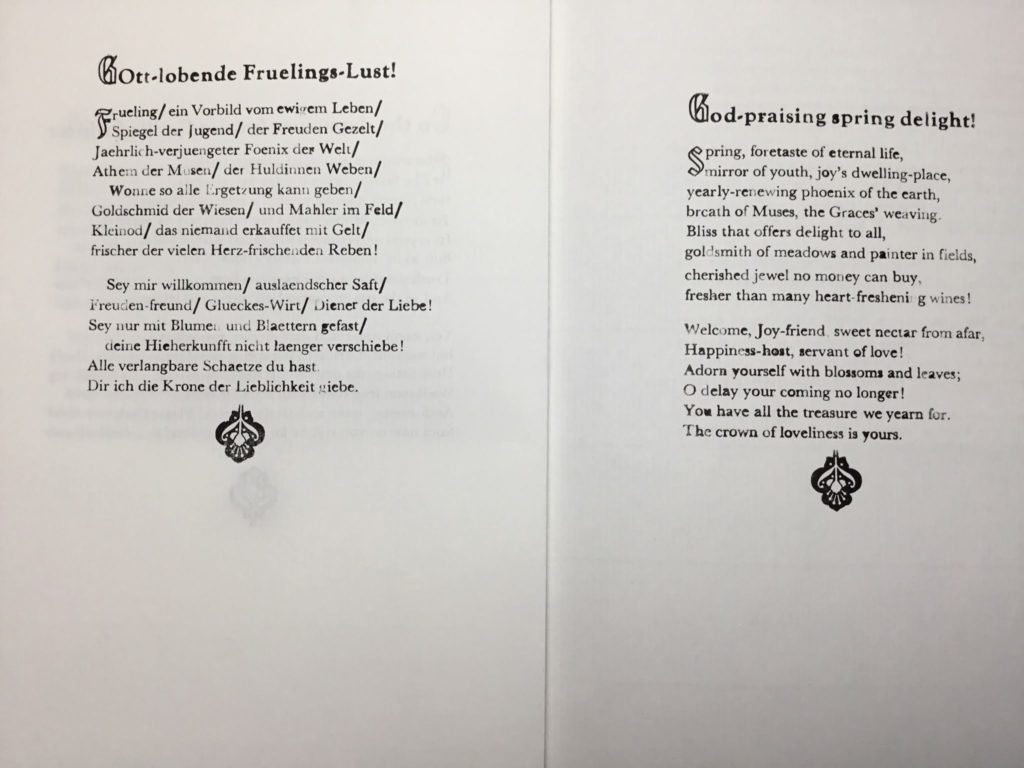1. Hear the noble nightingale’s sweet song echo through the woods. With lyric verses she fulfills her duty to her Maker. 2. In the whitened tent of the world she sings. Her zeal and effort aimed so that God’s praise rings out with clarity: 3. To you, you, you O highest refuge I offer without words my gratitude. My endless longing is to raise on high your honour. 4. Every feather summons praise and demonstrates your gentle goodness. Grant that, when my wings are raised, gratitude will ring out clearly from my heart. 5. Every little worm I eat is indeed a gift of your sending. Accept, before this meal, Sustainer, this praise offering and refresh me, always. 6. Be praised from this branch where I alit to rest And not to praise you. No! Yet your renown will always here and everywhere be drawn forth from me. 7. You, lovely songstress, with your song have awakened me: I’ll sing only of God’s grace at which I’m always totally amazed. Click here to read this poem in the original German.
Category: Nature/ The Seasons
A Greiffenberg printing project
Greiffenberg was not fond of winter. According to the subject index of Geistliche Sonnette, Lieder und Gedichte, she wrote seventeen poems about spring, but just two about winter: the first equates winter with adversity, the second celebrates winter’s departure.
That second one caught our attention because of its title: “On the Departure (Praise God!) of Winter” (“Auf den/ Gott Lob! vergehenden Winter”). We already knew Greiffenberg as a woman of intense feeling, and that’s certainly the case here, where she addresses winter as the destroyer, arch-enemy of all the earth. For her–a poet who saw the world through the lens of her faith–the departure of winter was a clear metaphor for Christ’s defeat of death.
When I (Joanne) took a course called The History of the Book at Canadian Mennonite University in the 2020 winter term, I wanted to do something Greiffenberg-related for my creative project. I had already had a taste of letterpress printing and wanted to do more, so I made an illustrated pamphlet with two of Greiffenberg’s sonnets. The sonnet on the departure of winter led nicely into one of the spring sonnets. For each one, I printed the original and our translation on facing pages.
The Lino block illustrations are both spring-related: apple blossoms on the cover, and on the inside a phoenix (yes, I know, it looks like an eagle). The latter is a reference to the spring sonnet, in which spring is called the “yearly-renewing phoenix of the earth.”
I had to make some compromises on the spelling. The sets of type I was working with were meant for English text, and had none of the umlaut vowels (ä, ö, ü) or the “scharfes S” (ß), so I used anglicized spellings for these (ae, oe, ue for the vowels; ss for ß).
If you click on a photo below, you’ll get a larger image with readable text. Both of these sonnets have been published in Wonder-Work: Selected Sonnets of Catharina Regina von Greiffenberg (CMU Press, 2023). Click here to read the winter sonnet in the original German, and here for the spring sonnet.
On the Peaceful Night-Time
Swiss composer Klaus Huber (1924-2017) set this poem to music in 1958. You’ll find a link to a concert video of this work below the translation. You can also find an audio recording on Apple Music.
1.
Star-spangled throne of Heaven
and you, moon, the night’s crown!
Shine while earth’s orb
conceals from us the sun’s bright rays.
2.
Stillness, the grave of thought!
Set worry and fretting aside
and still, still, still in me
every heart-stirring desire.
3.
Now music in the air
sleeps in the cleft of a hollow tree.
Resting, it does not disturb
God-hon’ring desire in me.
4.
Sweet nectar of God-given grace
that blesses me while I sleep!
Let fortune’s light and being
flow and fill me while I’m dreaming.
5.
Shadow, friend of restfulness!
Night—refreshment after labour!
Let not darkness be so deep
it hides the noble light of heaven.
6.
And you, source of serenity,
Lord of my heart, come near
and be my resting place. Even asleep,
I will keep true watch with you.
7.
Close tight, my eyes,
be rich in restfulness.
But you, my spirit, stay awake
to praise your God at midnight.
Click here to read this poem in the original German.
Click here to see a concert video of Klaus Huber’s musical setting.



